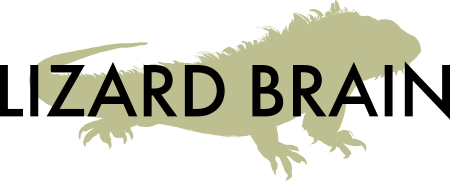Questions to Ask When Hiring a Visual Practitioner
The best discovery sessions are visual.
I love doing discovery meetings: those initial discussions with prospective clients that answer the basic questions of a project. I love introducing new people to all that I have to offer as a visual practitioner. I love how their faces light up when we work together to take a good meeting and make it extraordinary.
Some clients understand our work as visual practitioners better than others. Some know exactly what they want. Others are at the very beginning of their thinking. Sometimes, they have a hard time articulating much more than, “How much are your services?” (I shared in another post how I respond to that question.)
I believe that every discovery meeting is a golden opportunity to shape how someone thinks and feels about the visual practice. If they’re fumbling for words, I say, “I’m getting the sense that you’re in data-gathering mode, seeing what’s out there, to help you decide if you even WANT to use a visual practitioner with your event. If it’s OK with you, could I share a few questions that I might ask if I was in your shoes?”
And when I ask that, I ALWAYS get a relieved “YES!”
Here they are.
“Are you visual facilitator or a graphic recorder?” This is as an opportunity to explain the difference. A visual facilitator uses visual templates and drawings along side their own active facilitation process on large paper to engage the group, guiding them through a series of activities to achieve an outcome. A graphic recorder is a silent visual note taker that captures the spoken conversations as he or she hears them.
“How long have you been a visual practitioner?” To me, experience is the number one factor that decides what clients can expect in terms of cost and quality.
“How often do you facilitate/record?” This also speaks to experience. Most visual practitioners begin as a side job. Then, if they’re successful, they may transition into full-time and fully dedicate themselves to it. Someone who visually facilitates full-time will naturally have more experience than someone who doesn’t.
“Can you tell me about work that you’ve done that’s similar to what I’m looking for?” This is more than just “show me your portfolio.” This speaks to the visual facilitator’s ability to discern the unique circumstances of each project and adapt their practice to meet those needs. A good visual practitioner will explain their process as well as their product.
“As a graphic recorder, do you favor capturing more content or more illustration? Can you show me examples of both?” This one depends on the client knowing what they want. If, for example, the event is an end-of-year party, and the client wants a retrospective that celebrates the successes of the previous year, then I’m going to be more illustrative and emotive in what I capture. If on the other hand, the outputs will be fed into a strategic planning document, then I’m going to capture more text and content.
“As a graphic recorder, how do you know what to capture?” This question gives me the chance to talk about how I synthesize what I hear, to judge what’s worth capturing versus what’s not. To me, the difference between good and great is the ability to capture from the lens of what’s important to the client rather than what’s easy or interesting to draw.
“As a visual facilitator, what would be your process for working with me?” A visual facilitator designs the agenda and activities in partnership with the client. They may want to gather data, either through interviews, surveys, or by reviewing past work. They’ll have regular check-ins with the client during the design process. And they will lead the design of the materials and facilitate the session.
“What information do you need from me?” A good graphic recorder should ask for specifics of time, place, agenda, topics, and any key visuals or colors the client would like captured. They should ask how they client would like to receive the final products, whether as a scan, a photograph, a PDF of all the visuals, or simply handing over the paper. A good visual facilitator will ask for all of the above, plus have a lot of questions about the outcomes, context, participants, and experience of the session.
“When can I expect a proposal?” I prefer this question over “How much are your services?” That tells me that the client knows that I’m going to be deliberate and thoughtful about the amount of work that will go into design and delivery, and that I’ll price out my services accordingly.
What other questions do you ask, do you hear, or would you LIKE to hear from your clients? Share a comment!

